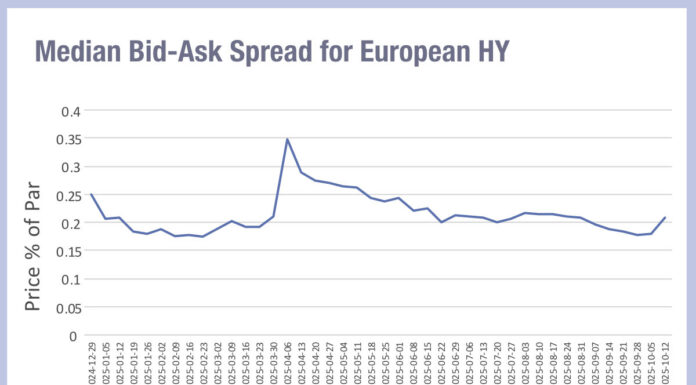The enormous potential of artificial intelligence to change the way investment firms invest and trade in markets was explored at the Fixed Income Leaders Summit in Paris on Friday, with Revant Nayar, principal and CIO at Princeton AI and FMI Technologies, noting that early applications were only the tip of the iceberg.

“We’ve seen that AI is being used a lot for pricing, forecasting, generating trade ideas and I think all that is great,” he said. “There’s a whole product suite for use in the wider industry, more chat bots and so on, some that are specific to finance, like Bloomberg GPT being widely adopted by people who are developing workflow automation.”
Looking ahead, this could change the way traders are integral to the investment process he observed.
“What we’re looking at to move forward is AI tools that can actually help the execution desk or trader take a more active role in risk management. That’s something that possibly we will see more and more,” he asserted.

Pablo Riddell, head of business & product development at sell-side firm SEB, noted that as AI moved deeper into mathematical capabilities entirely new applications could be found.
“There are distinctions between machine learning, between large language models and generative AI, and one of the constraints we have the existing tool sets are that it is very good at dealing with language, so for example trading ideas and we use chat bots in workflow automation and electronification of operational tasks, but real efficiency gains will be from numerative analysis and generation. At the moment off the shelf tools do not really cater for that yet,” he said.
Nayar noted that even very human trading patterns could potentially be transformed by clever use of AI, which were currently being developed.
“We’re actually trying to build AI-driven protocols in house to mimic more closely how human beings negotiate on voice,” he said. “Yesterday at the event, we saw for high yield bonds voice trading has not declined that much over the last few year, and the reason for that is we do not just need electronification but an AI application that can negotiate – the trades are not simply take it or leave it trades. We think AI can negotiate like a human trader with all of the nuances that need to be taken in such as price discovery.”
©Markets Media Europe 2024
©Markets Media Europe 2025













